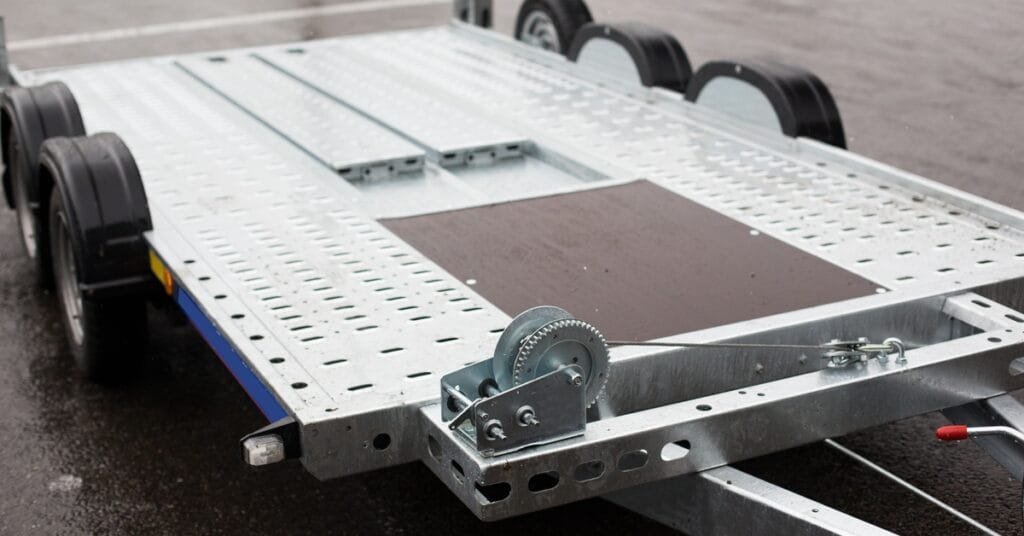Choosing the right trailer involves weighing durability against cost, convenience against maintenance, and immediate needs against long-term value. Aluminum trailers have gained popularity among haulers, but determining whether they match your specific requirements requires examining several key factors.
Aluminum Trailers Offer Superior Durability
Steel rusts. Wood rots. Aluminum resists both problems while maintaining structural integrity for decades. This lightweight metal forms a protective oxide layer when exposed to air, preventing corrosion that destroys other materials. This means that aluminum versions can withstand harsh weather conditions without significant degradation.
The material’s strength-to-weight ratio exceeds most alternatives. You can haul heavier loads while staying within vehicle towing limits, and the reduced trailer weight improves fuel efficiency during transport.
Initial Costs Run Higher Than Alternatives
Aluminum trailers command premium prices compared to steel counterparts. You should expect to pay 20–40 percent more upfront for similar capacity and features. This price difference reflects manufacturing costs and material expenses rather than inflated profit margins.
However, financing options often accommodate higher initial investments, and the extended lifespan typically justifies the increased spending.
Maintenance Requirements Remain Minimal
Steel trailers demand regular inspections for rust spots, protective coating applications, and eventual replacement of corroded components. Aluminum versions, on the other hand, require basic cleaning and occasional hardware checks. You’ll spend less time and money on upkeep throughout your ownership.
Simple soap and water suffice to clean and maintain your aluminum trailer properly. Avoid harsh chemicals or abrasive materials that might damage the surface finish.
Resale Value Stays Strong
Aluminum trailers retain value better than steel alternatives due to their corrosion resistance and longevity. Well-maintained units often sell for 60–70 percent of the original purchase price after several years of use. Meanwhile, steel trailers typically depreciate more rapidly, especially when rust becomes visible.
This retained value reduces total ownership costs and provides better returns when upgrading to different equipment.
Weight Savings Impact Performance
Reduced trailer weight translates to improved vehicle performance, better fuel economy, and enhanced handling characteristics. Aluminum’s lighter mass allows for easier maneuvering in tight spaces and reduces wear on your towing vehicle’s transmission, brakes, and suspension components.
The weight advantage becomes particularly valuable when hauling maximum loads or traveling long distances regularly.
Make Your Decision Based on Usage Patterns
Heavy commercial users who prioritize longevity and reduced maintenance typically find aluminum trailers cost-effective despite the higher upfront expenses. However, occasional users with budget constraints might prefer steel alternatives that meet immediate needs at a lower initial cost.
Consider your hauling frequency, load requirements, storage conditions, and planned ownership duration when evaluating options. Aluminum makes sense when you value convenience, durability, and long-term value over initial savings.
Investing in an aluminum trailer pays dividends through reduced maintenance, improved fuel efficiency, and stronger resale values that offset premium pricing over time.
